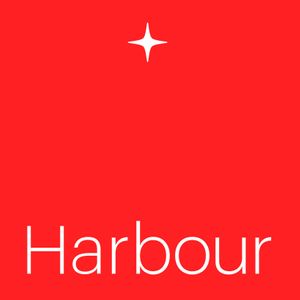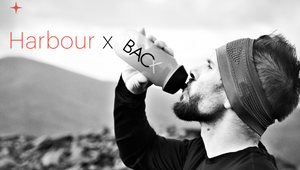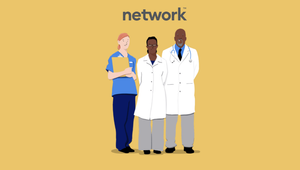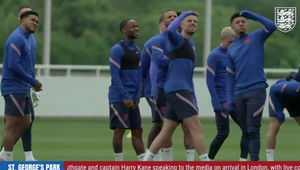
5 Minutes with… Kev Chesters
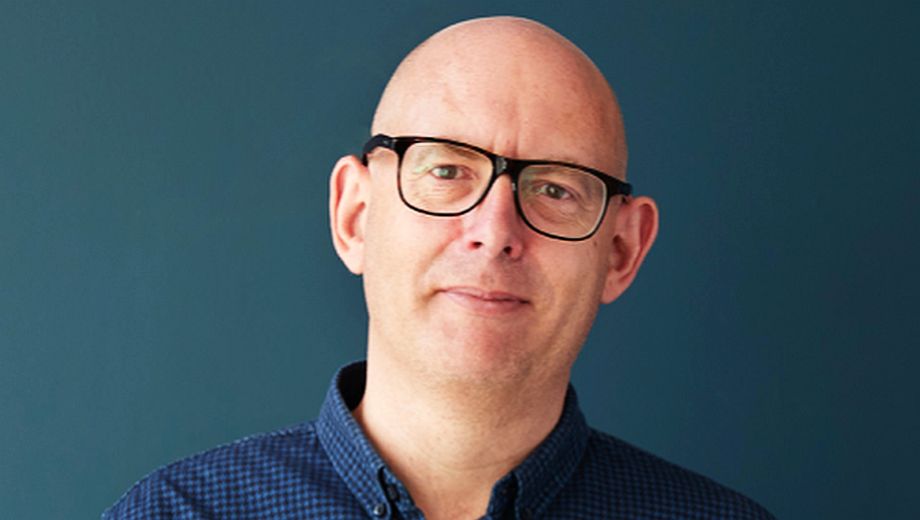
Anyone who knows Kev Chesters, the enthusiastic, open and insatiably inquisitive CSO at Harbour, might be surprised to learn that he cut a rather shy and bookish figure as a child, growing up in Cornwall. But his childhood love of books moulded him into the perpetually curious and intellectually playful person we know today. Which seems to be a pretty handy personality profile for a planner.
After a career at big network agencies like Saatchi & Saatchi and Ogilvy – as well as a significant stint client-side at BT – Kev is now turning his analytical and probing mind to Harbour, a collective of independent, specialist agencies, who are leveraging expertise and flexibility to outwit the holding companies. And, for someone who claims to love being proved wrong, the chance to play with such an array of marketing experts has proven to be pretty invigorating.
Kev caught up with LBB’s Laura Swinton to talk about his career, his advice for aspiring planners and thoughts on why the Covid chaos has been particularly interesting for planners.
LBB> What qualities do you think make a good planner?
Kev> Curiosity is a big thing. Questions are a big thing. I also think that good planners have a real willingness to be proved wrong. I quite enjoy being proved wrong. I always have quick first thoughts on any brief and that always turn out to be spectacularly shit. It's that old cliche, strong opinions lightly held. I think all you really need to be a planner is an informed opinion.
That's all we really need: an informed opinion and the confidence to be able to back it up. And that confidence can come from personality, it could come from data or whatever. But having an informed opinion is really all planning is. I've always said the only other thing that I think makes a good planner is the ability to separate the useful from the interesting. So, the whole world is interesting, right? It really is. It's absolutely bloody fascinating.
LBB> But that’s got to be so hard for someone who is so driven by curiosity! That ability to hold your curiosity back, when needs be…
Kev> Which why all planners are such tortured souls, isn't it? There isn't 'the' answer. There's 'an' answer and there are millions of other answers and all those answers can be simultaneously right? I've always tried to say to clients, ‘you work in marketing, not mathematics’. There's more than one answer. If you're piloting a space shuttle into orbit, and you're plotting the coordinates, well, there's one answer. If you get it wrong you bloody well blow up. But what we're doing, there's millions of answers. Just find one and get behind it and get good.
LBB> As a planner, how do you feel Covid and lockdown has impacted planners? On the one hand, you’re starved of cultural and social input, but then it’s potentially one of the most interesting times ever…
Kev> I think what Covid has done is thrown everything up in the air - and I think that's actually quite a good playground for planners. I don't think I've ever felt more needed. People keep asking my opinion on things. Because nobody knows. I think people keep looking to old data, what happened in the last recession. But it isn't a recession. It's a global pandemic, which causes mass national trauma. It's a complete loss of trust in the things that we relied upon. Going to work, getting on a train, going to the gym, having a pint, going out for a meal with your wife or your boyfriend. Everything that we thought we knew has been thrown up in the air. That means that we can start to look for different answers in different ways.
LBB> I’m really keen to find out what led you to planning. Let’s go right back; what kind of kid were you? What was your childhood like?
Kev> I grew up in Penzance in Cornwall. I think I was a bit odd… but I was quite chatty. Weirdly, for somebody who's known as an extrovert, I was incredibly shy as a child. But I read a lot of books. My dad left school when he was 15, my mum became a nurse when she was 18 and they surrounded me with books. That's all I can really remember from my childhood: lots and lots of books. I think that's what gave me my love of history.
LBB> How did advertising end up on your radar as a possible career?
Kev> I didn't really consider it until I was in uni. I was very easily put off when I was a kid. If someone told me, 'that won't work or you won't like that' that, I was quite easy to discourage.
I always wanted to be a journalist and I went to see a talk from the Guardian when I was in my second year. And at the end, I went to talk to the guy who had given it. He asked if I had done much journalism and I hadn’t. He said I had no chance. So, I just gave up on it completely. Obviously.
I went to the Career Service and went through one of those computer programmes and it said that I should get into advertising. Because of the way that I am - the way that all teenagers are - I was spectacularly arrogant. I just wrote down the top five in the country by size. I thought, there was no point applying to people who aren't the best ones. So, I just wrote five letters to five agencies.
And I got three interviews from that…
LBB> What was your first job in the industry?
Kev> Because I was a bit clueless about how the world works, I thought I would wait to finish my degree before applying for jobs. The agencies sent me a note back going, ‘you've missed our graduate schemes'. So, I had to spend a year back in Penzance. I spent six months sweeping a warehouse, with my Oxford degree having people shouting, 'Yeah, look at the bloody Oxford boy! He thinks he's better than everyone!' every day. Then I spent six months stuffing envelopes in a Christmas card printing place.
I went through a slightly eclectic few months and applied for lots of different jobs. I applied to be a crisp rep in the North East. I got turned down for being a Virgin Atlantic cabin crew for being one inch too tall, true story. I applied to be an accountant. I was offered a job as deputy head of history at a public school in Colombo, Sri Lanka, which I didn't take up, and then I got offered a job at an ad agency in Soho Square that no longer exists... Two years after graduating I got my first job really in advertising.
LBB> What was that like?
Kev> The agency was a complete shambles. People kept leaving and because I didn't know how an agency worked, I just sort of stepped in and did things.
I did an ad that ended up on telly. I art directed a shoot with Ryan Giggs. I was supposed to be the account man. I went from being an account executive to a senior account exec to an account manager to the senior account manager in four months.
LBB> And how did you move over then from the account side to a strategy role?
Kev> I worked as an account handler for about two or three years at Ogilvy. Really liked the place, got on well with my boss, clients liked me. In fact, one of them subsequently employed me. But I was stumped - I just didn't find it very interesting.
I started thinking, 'is this everything that I want to do?’ I met a planner who said to me, 'why do you want to get out of advertising?' I said, 'Well, I just find it a bit boring really.’ He told me to write me a list of everything I loved about my job and everything I didn't. I did and then he looked at it and he said, 'You're not in the wrong industry, just the wrong job!'.
LBB> What did you do next?
Kev> I went to see the head of planning - because I've always been quite direct - and just said, ‘Can I have a job as a planner?’ And he said, ‘that's a real shame… if you'd asked me last week…’
John Tipple – who has since been the CSO of McCann and various other things – was a year older than me. At that time he was an account handler too and he had just asked the same thing. I went to see Mike Dodds, who was the MD of Ogilvy One. And he said to me, 'Well, look, you've spent three years working here. We spent three years training you up. We really like you. It would be bloody daft for us to let you go.' He thought there was bound to be somewhere in WPP that needed a planner at my level. He knew I was 26 and impatient. He phoned up Janet Grimes, who was head of planning at O&M in Canary Wharf. And that’s how I ended up in planning.
I ended up in O&M and I absolutely hated it. Literally despised it. The agency was absolutely imploding. A year later I got a call from my old IBM client who had gone to a new place that didn’t have a planning department. He asked me to be in the planning department.
I did that for a year with him. It was brilliant. Just flew all over the world doing brilliant shit while all that dotcom money was around. Then that dotcom money dried up.
LBB> And then you ended up at BT?
Kevin> I was woefully under qualified to do the job - ridiculously young, at the single biggest advertiser in the country. I went in there to head up business planning. And after a year, the guy who was in charge of consumer planning left and so they offered me that job. So I was head of consumer planning at BT. I got to work with Fallon, CHI, Abbot Mead, St Luke's, PhD, and all these people now who are just top people in the industry.
LBB> It must have been interesting to be able to see the agency world from the outside, from a client’s perspective…
Kev> Oh, it was terrifying. I won't say which of those agencies it was, but I sat in a meeting in the first week with the ad agency as a client. And all I did was thought to myself, 'Christ, I didn’t used to sound like that, did I?'
I loved it. I learned so much in those three years from brilliant people. Amanda McKenzie was my boss there – she left there to head up British Gas and then went to work with Richard Curtis and is now doing The Prince’s Trust.
LBB> So after being client side, you moved back to the world of agencies. Why?
Kevin> I always felt one step removed from the creative. I really wanted to work back at agencies. A job came up at Saatchi’s and I spent three years there. Loved my clients, loved working with Dave Henderson and Richard Denney, my main creative team. We did some brilliant work on Carlsberg.
In 2006, I made a list of 11 brands and agencies I would leave Saatchi’s for. At the time the agencies were places like BBH, Wieden’s, M&C Saatchi, DDB. And brands like eBay. The brand that was at the top of the list was Nokia. My head-hunter phoned me and I gave her the list and she said, ‘well, how do you fancy running Nokia at Wieden’s?’
In 2013, I had probably stayed at Wieden’s a bit too long. I was called by Paul [Jordan] and Angus [Macadam] at mcgarrybowen. They were setting up in London. All my career, to that point, I had worked at agencies that had a reputation. And over the year, as I’ve tried to hire planners, a lot of planners, and they will only work for agencies that have a reputation already.
LBB> And now you’re at Harbour, which is a pretty different set up to those agencies and holding companies you’ve worked at before. What was it that drew you in?
Kevin> It was probably the biggest move I made in my career, but definitely the easiest. I spent a lot of my time working for big corporates. I wanted to do something different.
We’re set up on two really interesting premises. One is that 80% of all work in the world of communications go through six holding companies, yet there is absolutely no benefit in what we do to scale. Our core product, creativity, doesn't come from having more people.
The second thing was that specialist agencies are completely disadvantaged in the modern world. Because everything's about convenience and cost. And you've got these really big organisations that sell to clients on the value of convenience, not excellence. It's ‘go to one place to get everything’. It won't be as good as if you've got it from individual places, but at least you don't have to be asked to organise anything. Remember that quote from Red Adair? “If you think it's expensive to hire a professional to do the job, wait until you hire an amateur.”
What Paul Hammersley noticed was, if you want to do something brilliant in the social media space, you'd be much better off getting an independent social media specialist to do it, rather than an advertising agency pretending it can do social media. Same with digital, same with local media, same with performance, same with anything. And so what Paul did was put Harbour together. In the first instance, he put an ecosystem of specialist agencies together that could work together, and more importantly wanted to work together.
He created this hub at the centre. He came and found myself and Mick Mahoney, who was CCO when I was CSO at Ogilvy, and created this consultancy at the centre.
Why did I do Harbour? I wanted to run my own business. I didn't want to be hostage to decisions that are made by other people somewhere else. Harbour being independent was really important to me. Working with Mick was really important to me. Having no separation between strategy and creative was important to me. But mostly, it was our founder's belief in the power of specialism.
What I came to realise when I left ad agencies was, if you ask a fishmonger what he recommends for dinner, don't be surprised if he says fish.







